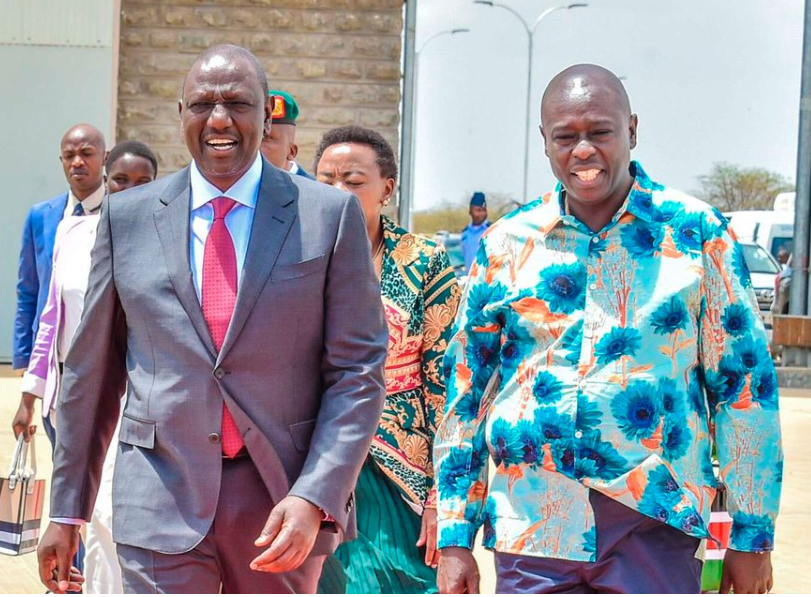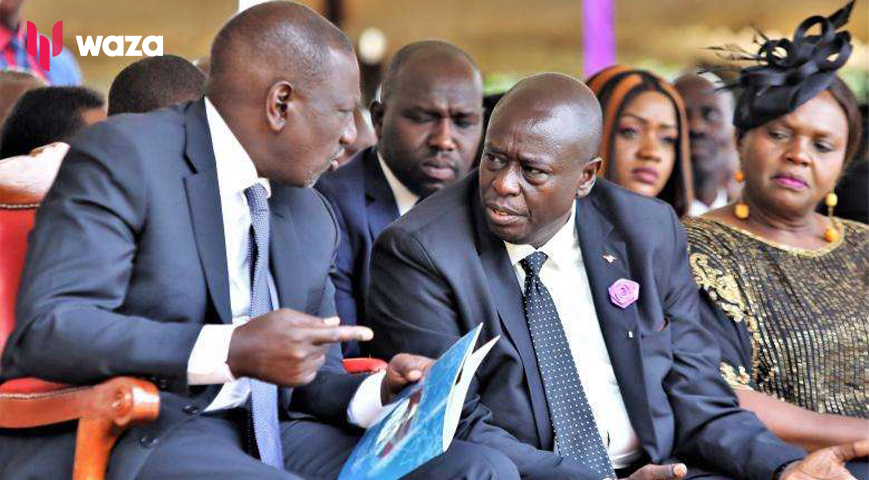President William Ruto and his former deputy, Rigathi Gachagua, are actively engaging with religious leaders in a bid to strengthen ties with the church and win public support ahead of future political battles.
Gachagua, now out of office after his impeachment, has used the church as a platform to connect with his supporters and criticize the government’s perceived hostility towards religious institutions. Speaking at PCEA Kerarapon Church in Kajiado North, Gachagua warned lawmakers against reviving the oppressive politics associated with the era of former President Daniel arap Moi.
He cautioned politicians, including Deputy Speaker Gladys Shollei and Senate Majority Leader Aaron Cheruiyot, against antagonizing the clergy, stating that historically, such actions have not ended well. This followed the lawmakers’ claims that Catholic bishops were spreading falsehoods in their criticism of the government.

Meanwhile, President Ruto and Deputy President Kithure Kindiki have taken a more conciliatory approach, emphasizing dialogue with religious organizations to address their concerns. Kindiki, speaking at a service in Sagana, Kirinyaga County, reassured the church of the government’s willingness to receive feedback and collaborate for the nation’s benefit.
“We have no fight with the church. We welcome input from all sectors, including the church and civil society, to improve our governance,” Kindiki stated.
President Ruto, addressing another congregation, echoed this sentiment, expressing readiness to engage with both religious leaders and citizens. “I accept the pressure because this country must progress. I am confident Kenya will change for the better,” he said.
The President’s outreach to the church comes amid heightened scrutiny from religious groups, particularly the Catholic bishops, who recently criticized his administration for unmet promises and governance challenges. Despite the criticism, Ruto has maintained his focus on building relationships with the clergy, attending three major Catholic Church events in succession, including Tangaza University’s graduation and an episcopal ordination in Embu.

Political analysts view this strategy as a calculated move to preserve the church’s support, a crucial voting bloc that played a significant role in Ruto’s 2022 election victory. Analyst Charles Munyui highlighted the importance of the church as a bridge between the government and the public, particularly given its role in education, healthcare, and community development.
“The church is deeply embedded in society. Aligning with its values helps the government connect with the people,” Munyui noted.
Gachagua, in his remarks, emphasized the importance of respecting the church’s independence and influence. “The voice of the church is the voice of God. When spiritual leaders speak, their words carry weight and should be taken seriously,” he said.
Observers believe the government’s renewed focus on religious groups is aimed at maintaining goodwill with this influential constituency while addressing mounting public pressure over its performance.









